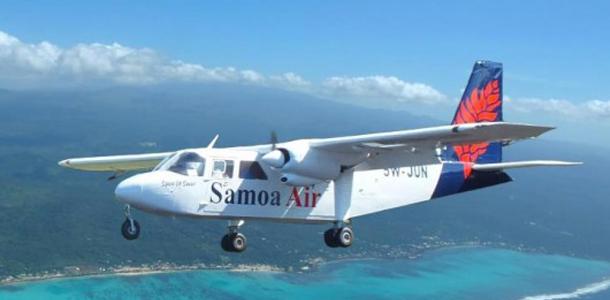Sorry ladies, if you’re planning on travelling via Samoa Air any time soon, you may want to pack light, even though your hubby probably won’t mind.
The small Pacific airline is now charging based on each passenger’s body weight plus their luggage weight for international flights.
Customers aren’t reacting very well to the change in airline fare. Apparently, offended passengers see it as weight-discrimination.
In reality, it’s not discrimination at all. Planes have weight limits and it makes sense for people to pay based upon their own weight rather than paying for just a seat.
“If I am getting less than 100% of the seat I paid for, the person taking my space should have to make up the difference,” a CNN.com reader commented.
If people have a tendency to bring heavy suitcases on their vacations, they should be paying for that weight too.
From a positive point of view, flying with children is much cheaper and you only pay for the space you take up.
Plus the airline will try to make accommodations for larger passengers such as wider seats and more legroom.
The airline doesn’t dsicriminate against those who are heavier or lighter.
Each person is charged the same amount per kilogram – or pound, here in the states.
Though some people may have a genetic predisposition to being overweight or underweight, many passengers really can control how much they will be paying to fly.
People talk about working out or going on a diet before a vacation.
The price of a plane ticket is a pretty good incentive to follow through with those plans.
If we really think about how much a flight ticket costs through any other airline, aside from the first-class-to-coach difference, prices are all the same.
But since cost is based on the weight capacity of a certain plane, you could be paying for your own weight and part of someone else’s weight.
Now is that fair?
It’s not fair if the smaller passenger is being charged for space they aren’t using.
“We have worked out a figure per kilo. This is the fairest way of you travelling with your family or yourself,” said Samoa Air CEO Chris Langton. “You can put your baggage on, there are no separate fees because of excess baggage – a kilo is a kilo is a kilo.”
Though some may say this won’t work for a larger airline, Samoa Air seems to be having success with their airfare methods.
Samoa Air operates three small aircraft, two 10-passengers and one four-passenger.
“Weight restrictions are the key practical problem they have to deal with on every flight,” said airline analyst Vaughn Cordle, an Ionosphere Capital partner.
On smaller planes, the cost-per-pound is higher than on larger aircraft, so charging a flat rate would be discriminatory against all passengers, Cordle said.

